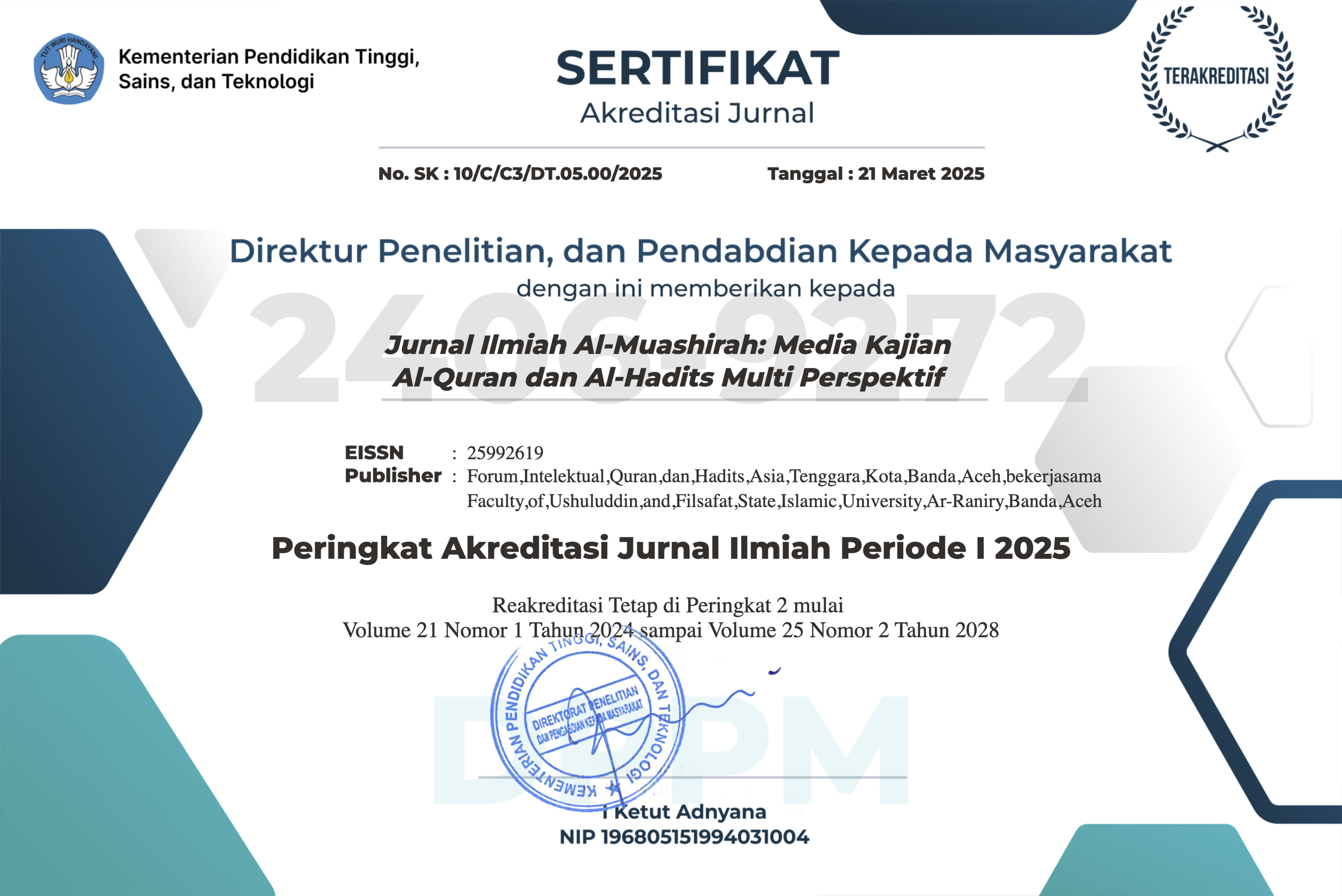Pengaruh Hadis dan Kekuatan Spiritual terhadap Sultan Muhammad Al-Fatih dalam Penaklukan Konstantinopel
DOI:
https://doi.org/10.22373/jim.v19i2.14285Keywords:
Hadist, Kekuatan Spiritual, Muhammad Al-Fatih, KonstantinopelAbstract
Constantinople is the most important city in the world, it was founded in 330 AD by the Byzantine emperor, Constantine I. The city has a number one position internationally. Since its founding, the Byzantines have made it the capital of their country. Therefore, Muhammad Al-fatih tried to be able to conquer Constantinople in order to realize the hadith of the Prophet Muhammad "Really, Constantinople will be conquered under the leadership of men, so the best leader is the leader (who conquers) it, and the best troops is the army (which conquered it). The efforts made by Muhammad Al-fatih in conquering the city have been designed in such a way. So that his political strategy in conquering Constantine could run well, until finally he succeeded in conquering the dream city. There are three things that gave rise to a great desire for the heroes of ancient Islam to conquer Constantinople. First, because of the encouragement of faith in Allah which was encouraged by the hadith of the Prophet SAW. Second, because for hundreds of years the city of Constantinople was the center of the splendor of the Romans. Third, because of the beauty of the country and its very strategic location, the connection between two major continents, Europe and Asia.
ABSTRAK
Konstantinopel merupakan kota terpenting di dunia, tempat ini didirikan pada tahun 330 M oleh kaisar Bizantium, Constantine I. Kota ini memiliki posisi nomor satu secara internasional. Sejak didirikan, orang-rang Bizantium telah menjadikannya sebagai ibu kota negara mereka. Oleh karena itu, Muhammad Al-fatih berusaha untuk dapat menaklukkan Konstantinopel dalam rangka merealisasikan hadist Rasulullah Saw “Sungguh, Konstantinopel akan ditaklukkan di bawah kepemimpinan laki-laki, maka sebaik-baiknya pemimpin adalah pemimpin (yang menaklukkannya), dan sebaik-baiknya pasukan adalah pasukan (yang menaklukkannya) itu”. Usaha yang dilakukan Muhammad Al-fatih dalam menaklukkan kota tersebut telah ia rancang sedemikian rupa. Sehingga strategi politiknya dalam menaklukkan Konstantinopel dapat berjalan dengan baik, hingga akhirnya ia berhasil menaklukkan kota idaman tersebut. Ada tiga hal yang menimbulkan keinginan besar bagi pahlawan- pahlawan Islam zaman dahulu untuk menaklukkan Konstantinopel. Pertama, karena dorongan iman kepada Allah yang disemangatkan oleh hadist Nabi SAW. Kedua, karena beratus tahun lamanya Kota Konstantinopel menjadi pusat kemegahan Bangsa Romawi. Ketiga, karena keindahan negeri itu dan letaknya yang sangat strategis, perhubungan antara dua benua besar, Eropa dan Asia.
Downloads
References
Abu Abdillah Muhammad bin Abdillah al-Hakim an Naisaburi, 1999. Al-Mustadrak ala al shahihain. Lebanon: Darul Kutub Bairut, 1420H, Jilid 4:468
Alatas, Alwi. 2006. Al-fatih Sang Penakluk Konstantinopel. Jakarta : Zikrul Hakim
Ali Muhammad Ash-Shallabi, 2017. Sultan Muhammad Al-fatih Sang Penakluk Konstantinopel. Jakarta: Darul Haq.
Ash-Shalabi, 2011. Fatih Al-Qostontiniyyah, Jakarta: Al-Kautsar.
Etta Mamang Sangadji, 2010. Sopiah, Metodologi Penelitian, Yogyakarta: Andi Offset.
Mestika Zed, 2008. Metode Penelitian Kepustakaan. Jakarta: Yayasan Obor Indonesia.
Musthafa Muhammad Abu Al Mu’athi, 2012. Dahsyatnya Ramalan Rasulullah. Bandumg: Salamadani.
Shalabi, 2006. Fatih Al-Qastantiniyyah As-Sultan Muhammad Al-Fatih. Mesir: Dar Al-Tauzi wa Al-Nashr Al-Islamiyah.
Siauw, Felix. 2017. Al-Fatih 1453. Jakarta: Al-Fatih Press
Syaikh Ramzi Al-Munyawi. 2011. Muhammad Al-Fatih Penakluk Konstantinopel. Pustaka Al- Kautsar. Jakarta.
Yatim, Badri. 2000. Sejarah Peradaban Islam (Dirasah Islamiyah II). Bandung: PT Raja Grapindo Persada.
Liata, N., & Fazal, K. (2021). Multikultural Perspektif Sosiologis. Abrahamic Religions: Jurnal Studi Agama-Agama, 1(2), 188. https://doi.org/10.22373/arj.v1i2.11213
Yahya, A., Bakar, S. A., & Rahman, M. (2022). Analisis Lafaz Tanshurullaha dalam Tafsir Fi Zilal Al-Qur’an dan Tafsir Al-Kabir. TAFSE: Journal of Qur’anic Studies, 7(1), 153. https://doi.org/10.22373/tafse.v7i1.12420
Downloads
Published
Issue
Section
License
Authors who publish in Jurnal Ilmiah Al-Mu'ashirah agree to the following terms:
- Authors retain copyright and grant the journal right of first publication with the work simultaneously licensed under a Attribution-ShareAlike 4.0 International (CC BY-SA 4.0) License that allows others to share the work with an acknowledgment of the work's authorship and initial publication in this journal.
- Authors are able to enter into separate, additional contractual arrangements for the non-exclusive distribution of the journal's published version of the work (e.g., post it to an institutional repository or publish it in a book), with an acknowledgment of its initial publication in this journal.
- Authors are permitted and encouraged to post their work online (e.g., in institutional repositories or on their website) prior to and during the submission process, as it can lead to productive exchanges, as well as earlier and greater citation of published work (See The Effect of Open Access).













